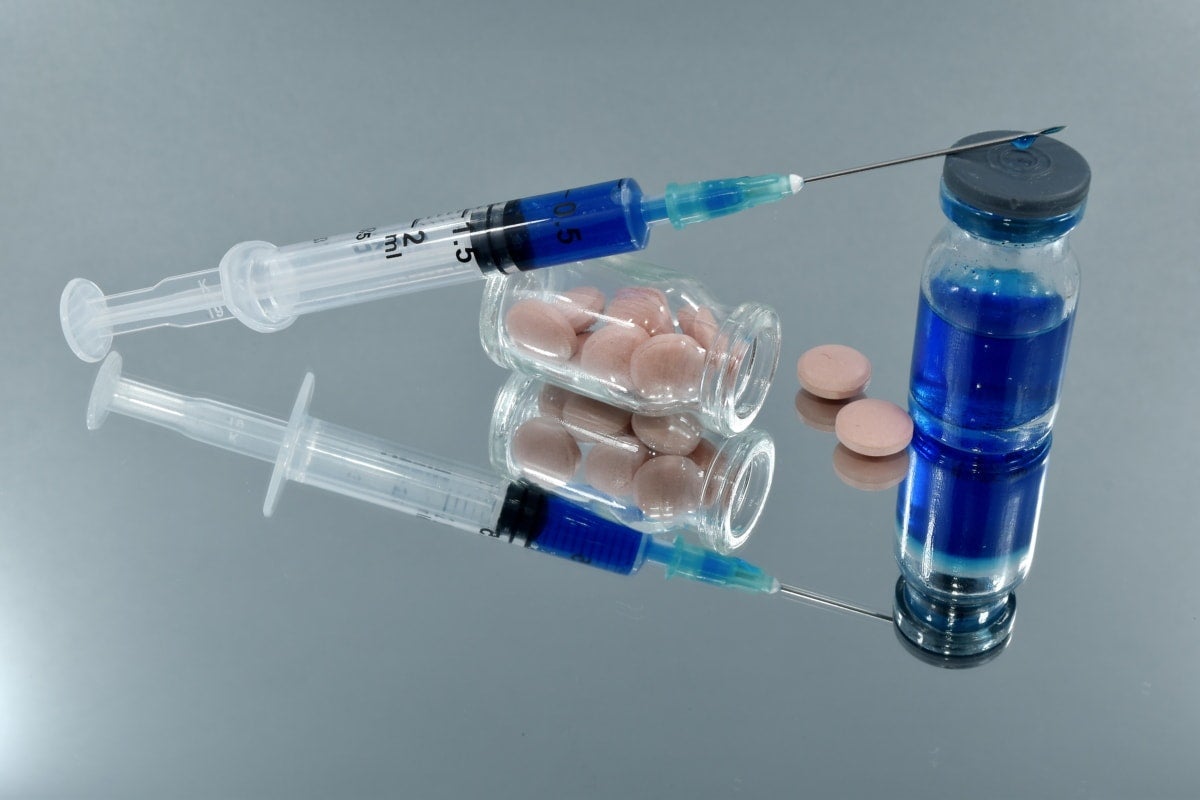
As the sixth most valuable pharmaceutical brand in the world, it is little surprise that US healthcare heavyweight Pfizer has taken numerous steps over the past few months to aid the global response to Covid-19 in any way it can.
After issuing a proverbial call to arms to the rest of the biopharma industry in March, it has also donated $40m towards combatting the virus’ impact and entered into a partnership with German biotech firm BioNTech to develop a novel coronavirus vaccine.

Discover B2B Marketing That Performs
Combine business intelligence and editorial excellence to reach engaged professionals across 36 leading media platforms.
And, with Pfizer revealing the first US clinical trial participants had been dosed with an mRNA-based vaccine earlier this week, we take a closer look at how the American company behind brands such as Xanax, Viagra and ChapStick has responded throughout the pandemic.
Pfizer’s Covid-19 battle plan
On 13 March, Pfizer’s CEO and chairman Albert Bourla issued a detailed five-point plan on how it — and other biopharmaceutical firms — could combat Covid-19.
Firstly, the company said it had already utilised its “most valuable resource” — people — in the fight against Covid-19 by assembling a SWAT team of virologists, clinicians and a host of relevant experts to focus solely on the virus.

US Tariffs are shifting - will you react or anticipate?
Don’t let policy changes catch you off guard. Stay proactive with real-time data and expert analysis.
By GlobalDataPfizer has also committed itself to share any tools and expertise at its disposal that may help in the development of testing, treating or vaccinating against the virus via an open-source platform.
Pfizer stated it would harness both its knowledge of drug development and regulation, and manufacturing capabilities — as one of the self-proclaimed largest vaccine manufacturers in the world — to combat the crisis.
Finally, the company claimed to have already reached out to several federal agencies such as the NIH (National Institutes of Health) and CDC (Centers for Diseases Control and Prevention) to build a cross-industry team of scientists, clinicians and technicians capable of responding rapidly in any future epidemics.
“In recent years, the biopharmaceutical industry has brought forward some of the most impactful medical breakthroughs known to society, from therapies for HIV and cancer that have extended millions of lives to novel gene therapies that are seeing cure-like outcomes for some of the most devastating rare diseases,” said Bourla.
“Pfizer calls on all members of the innovation ecosystem — from large pharmaceutical companies to the smallest of biotech companies, from government agencies to academic institutions – to commit to work together in addressing this dire crisis.
“With our combined efforts we know that there is no health challenge that we cannot overcome.”
Pfizer partnership with BioNTech
Four days after this mission statement of sorts, Pfizer announced it would be collaborating with BioNTech — a biotechnology firm based in the city of Mainz that ordinarily focuses on individualised cancer medicines — to develop a Covid-19 vaccine.
The two companies have been working to develop an mRNA-based vaccine to prevent influenza since 2018 — and Pfizer is now looking to accelerate BioNTech’s “potentially first-in-class” BNT162 vaccine program for the coronavirus.
Unlike conventional vaccination methods — such as live-attenuated or inactivated vaccines — mRNA-based vaccines work by administering an mRNA (messenger ribonucleic acid) sequence, which essentially tells the cells inside the body what to build.
If this sequence is coded for a disease-specific antigen — in this case, the SARS-Cov-2 virus strain that causes Covid-19 — the body’s immune system can recognise the antigen once infected, and build appropriate proteins to fight off the real thing.
On 22 April, Pfizer and BioNTech jointly announced they had received approval from medical regulatory body the Paul Ehrlich Institute to begin human clinical testing of four mRNA vaccine candidates in Germany.
Most recently, having already dosed an initial group of participants in Germany a week earlier, the firms announced on 6 May that the first human subjects in the US had also been administered with Covid-19 vaccine candidates in Phase 1/2 clinical trials.
Both companies are now preparing to ramp up their manufacturing capabilities, and subject to successful testing and regulatory approval, hope to supply millions of vaccine doses to the public by the end of 2020.
Pfizer has also declared its intention to scale up its capacity even further, and deliver hundreds of millions of vaccines in 2021 — with its primary focus being on supplying the US and Europe.





